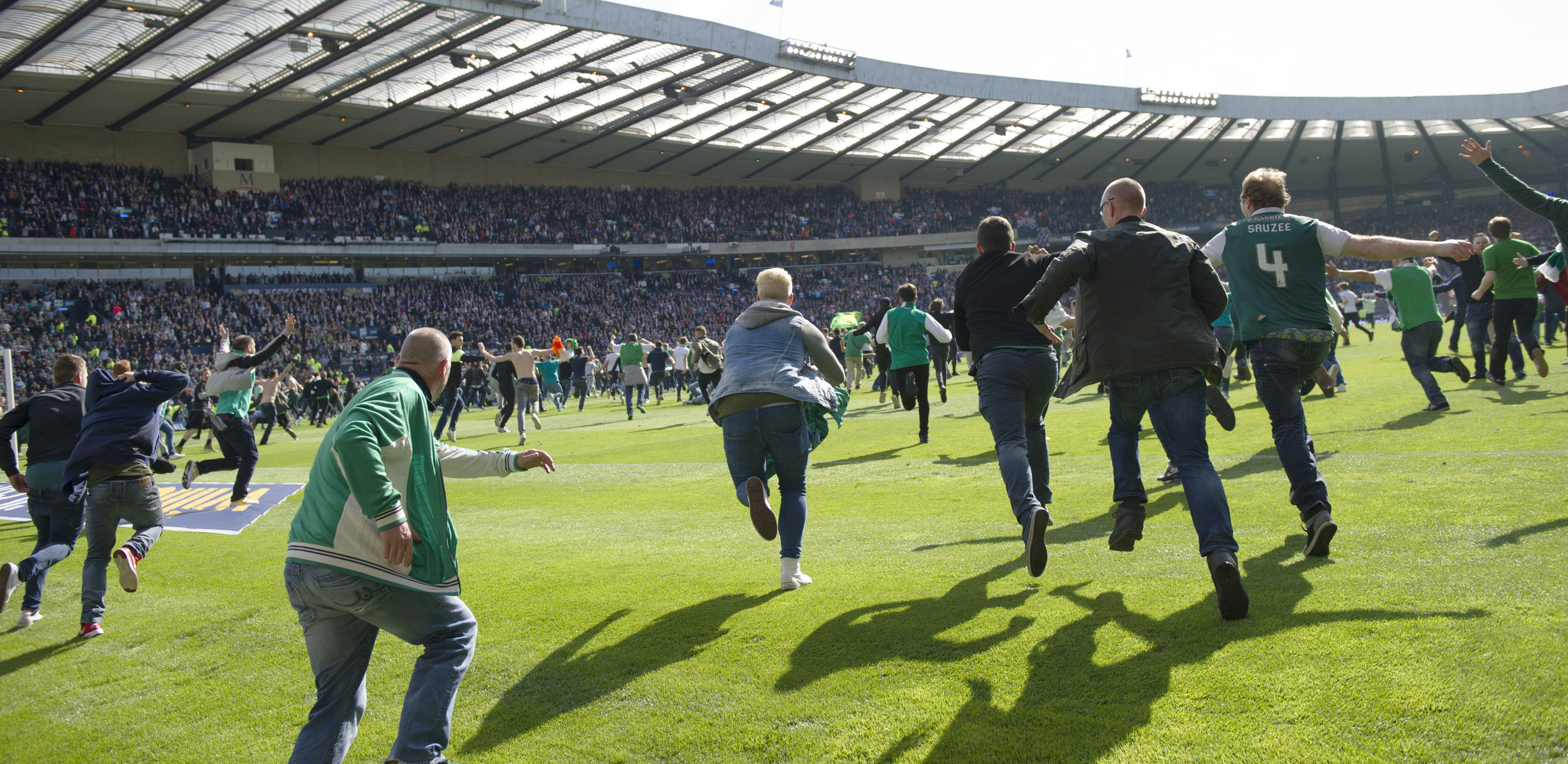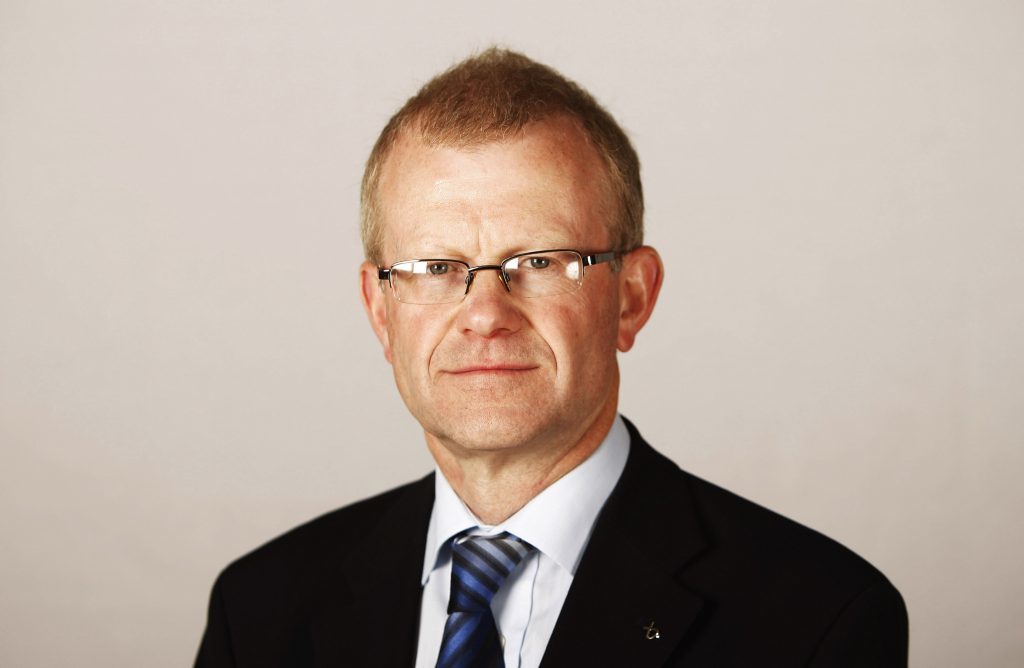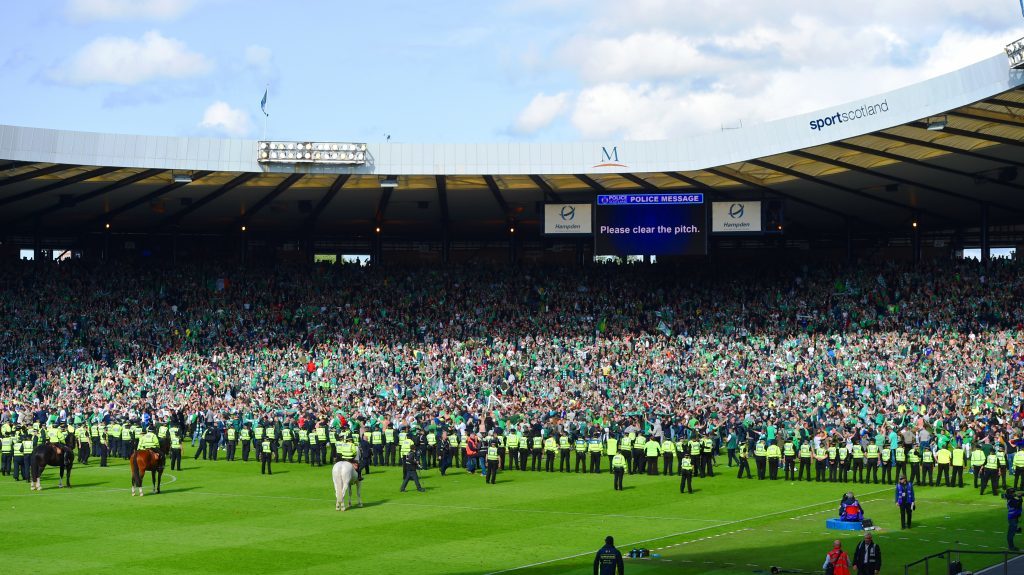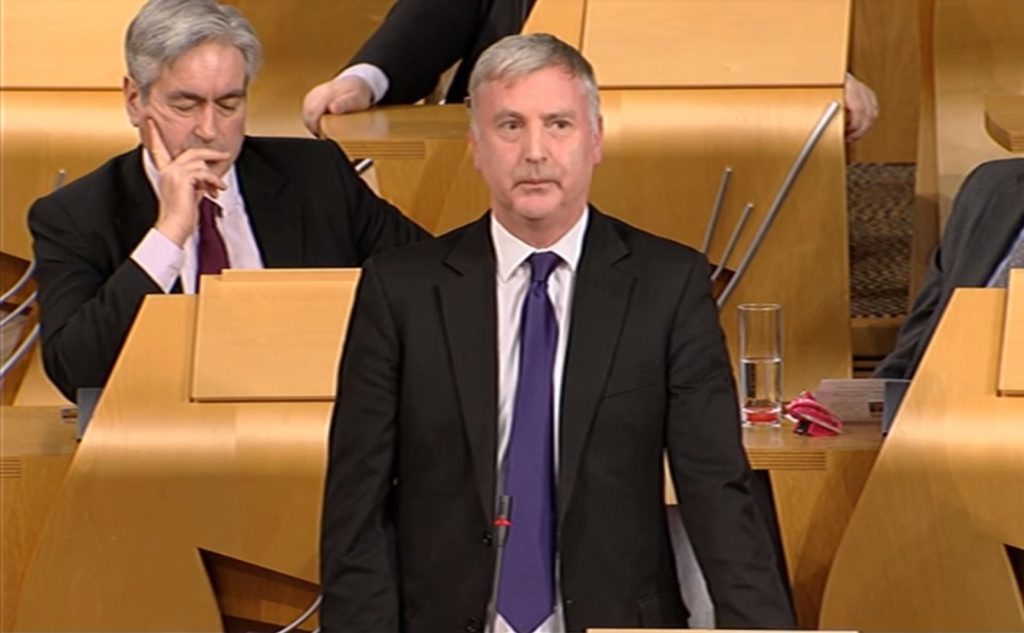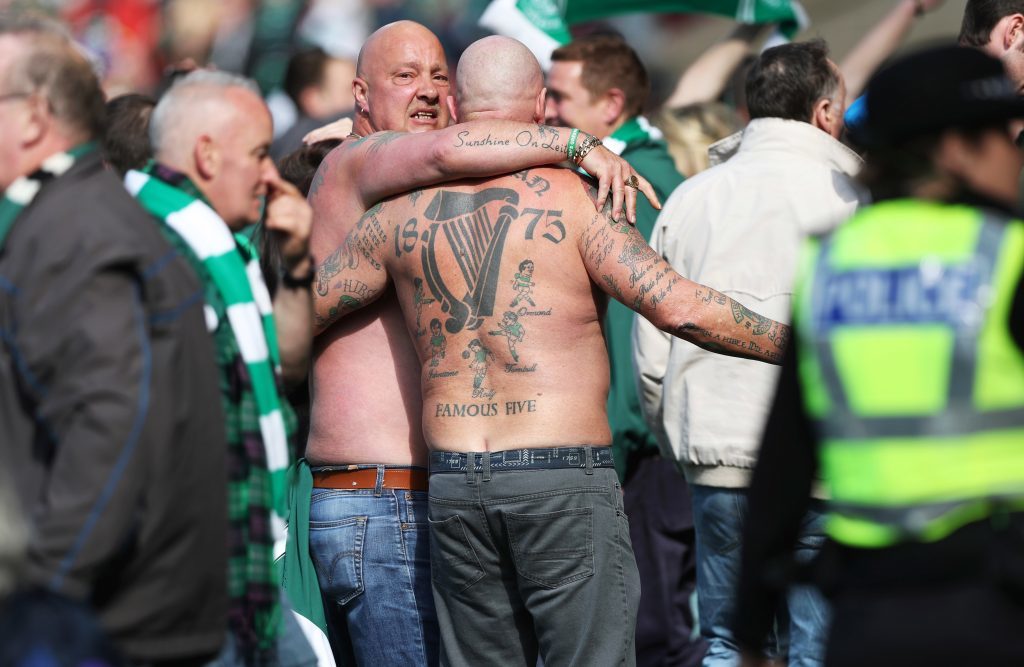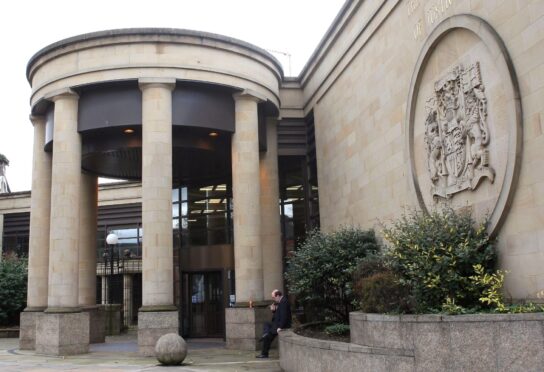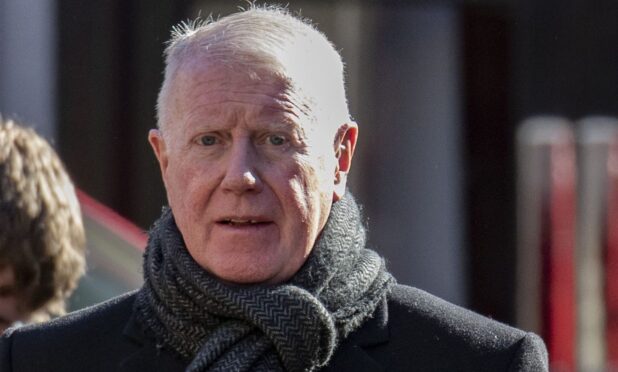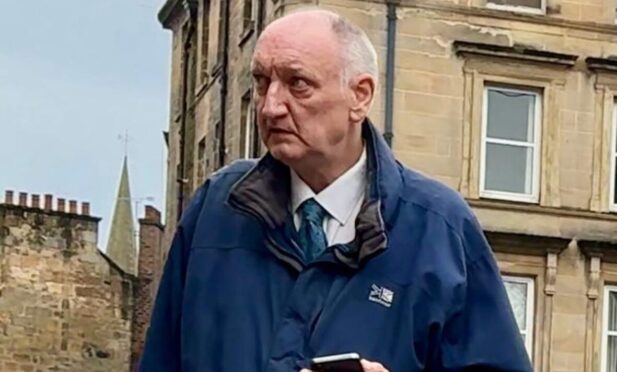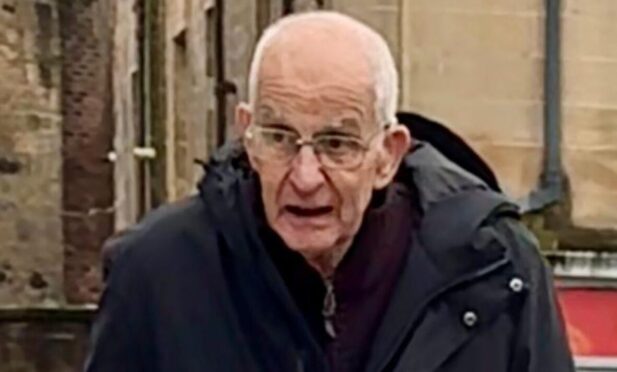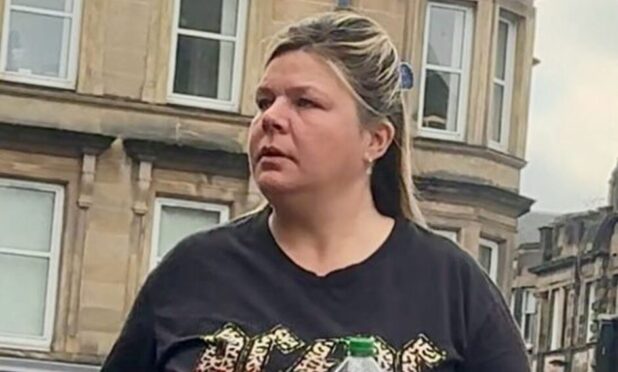An SNP MSP has urged opponents of the Offensive Behaviour at Football Act to back down after the fan trouble at the Scottish Cup final.
John Mason has submitted a Holyrood motion describing the “widely felt disappointment” at the scenes that marred the end of the game between Rangers and Hibernian at Hampden on Saturday.
Mr Mason added that it would “not be an appropriate time to relax the law” on offensive behaviour or to repeal the ban on alcohol at football.
Opposition parties have all raised concerns about Act, with Labour planning to draft proposals to repeal it before the summer recess.
The Act criminalised offensive and threatening behaviour, including sectarian behaviour, related to football matches and any communications containing threats or incitement to religious hatred.
A report published earlier this year revealed there were only 79 convictions in 2014/15 under the legislation, with opposition parties stating the figures demonstrate the law is unnecessary.
It was the first legislation passed in Holyrood with no cross-party support and is one of the first SNP initiatives in the firing line now that it has been reduced to a minority government.
The debate comes as Police Scotland investigate the pitch invasion and violence following Hibs’ 3-2 win over Rangers.
The Glasgow club said players and staff were assaulted as thousands of Hibs supporters flooded on to the pitch following the Edinburgh team’s dramatic win.
Rangers fans also made it past stewards and on to the pitch, leading to a period of fighting between the two sets of supporters before mounted Police Scotland officers restored order at the national stadium.
Mr Mason’s motion reads: “Football can be a great opportunity for fans to let off steam but that there have to be limits as to what behaviour is acceptable; notes calls to change the law in relation to football, including repealing the ban on alcohol and relaxing the rules on offensive behaviour, and, in light of the recent situation, considers that this would not be an appropriate time to relax the law in either of these areas.”
Labour MSP James Kelly said: “The Football Act is not adequate in dealing with the unacceptable scenes after Saturday’s match.
“Charges brought against those involved are likely to be for breach of the peace or assault.
“This underlines the inadequate nature of this legislation which has caused distrust between fans and police. I will therefore be pressing ahead with my plans to repeal the discredited Football Act.”
Former Justice Secretary Kenny MacAskill, who oversaw the passing of the law, said the Act “could be improved”.
Speaking to BBC Radio Scotland, he said: “Scotland still has an issue, Saturday could have been catastrophic, albeit a lot of it was done with the good intentions of just enjoying themselves.
“Let the SFA, let Police Scotland, do the work. I have no doubt parliament will review this but what we can’t do is go backwards in the legislation we’ve got, we’ve got to maybe go forwards making it better.”
Other bodies are urging the football authorities to introduce “strict liability” to make clubs responsible for the actions of fans.
Dave Scott, director of anti-sectarian charity Nil By Mouth, said: “We’re not suggesting that strict liability replaces policing, strict liability isn’t the magic bullet but it’s a direction of travel in terms of cultural change in football.
If you take, for example, that the events that happened on Saturday took place in a public house or nightclub, they would have to go before a licensing committee, the chances are that their licence would be taken away from them for a period of time and they would be given a series of recommendations as to how to improve their security in these situations.
“I think that you are responsible for the behaviour of the people that you sell tickets to and it tends to be the case that tickets are bought through the home club.
“This isn’t something we’re just dreaming up in a back room, this is something that is introduced across Europe, it’s a ready-made framework that we can try and impose to improve people’s match day experience in Scotland and get people coming back to matches.”
